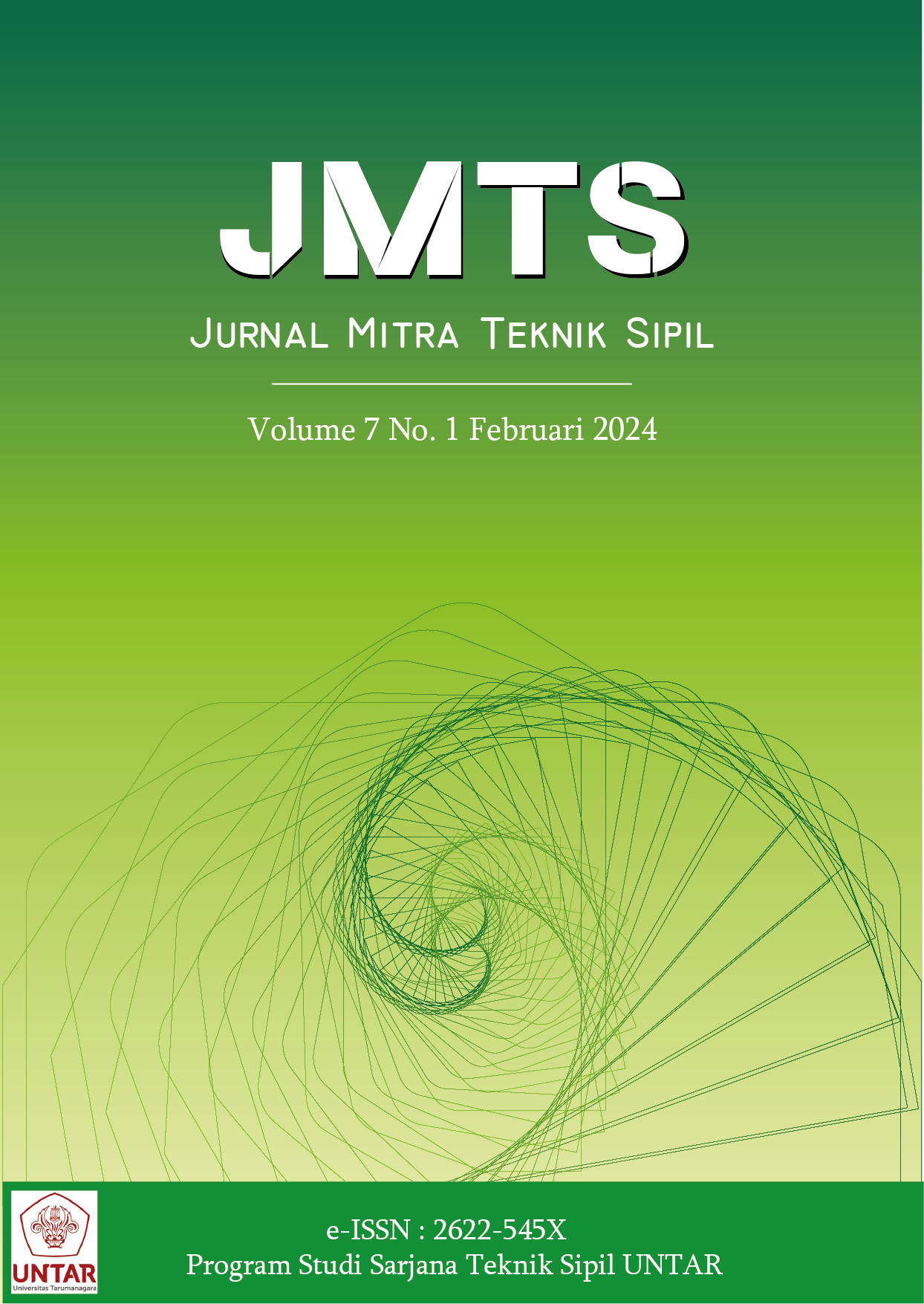PENGARUH MOTIVASI PEKERJA TERHADAP PROGRES PENGERJAAN PROYEK MASJID KRS
Main Article Content
Abstract
Construction projects require unwavering commitment from workers. In large-scale endeavors like mosque construction, timely progress is crucial. Motivation within the construction sector plays a pivotal role, determining their willingness to deploy skills and time towards project objectives. This study explores the influence of worker motivation on the progress of the KRS Mosque project. The findings emphasize that salaries and benefits positively impact motivation levels. Work conditions and physical environments affect morale, although some hold negative perceptions. Most workers feel secure, which has a positive impact on project progress. Strong relationships among coworkers enhance motivation for contributions. Recognition and appreciation for contributions further boost
motivation. Opportunities for career advancement carry significant motivational weight. The entire project team take spride in their contributions. Project progress data demonstrates a continuous upward trajectory, underscoring thecritical role of motivation in timely project completion. Understanding worker motivation is essential for efficient project management, ensuring that projects run smoothly and meet their goals within budget and schedule constraints.
Abstrak
Proyek konstruksi menuntut komitmen yang teguh dari para pekerja. Dalam proyek-proyek besar seperti pembangunan masjid, kemajuan yang tepat waktu menjadi sangat penting. Motivasi dalam sektor konstruksi memainkan peran penting, menentukan sejauh mana mereka bersedia mengaplikasikan keterampilan dan waktu untuk mencapai tujuan proyek. Penelitian ini mengeksplorasi pengaruh motivasi pekerja terhadap kemajuan proyek Masjid KRS. Temuan penelitian menekankan bahwa gaji dan manfaat tambahan memiliki dampak positif terhadap tingkat motivasi. Kondisi kerja dan lingkungan fisik memengaruhi semangat, meskipun beberapa pekerja memiliki pandangan negatif. Sebagian besar pekerja merasa aman, yang berdampak positif pada kemajuan proyek. Hubungan yang kuat di antara rekan kerja meningkatkan motivasi untuk berkontribusi. Pengakuan dan apresiasi atas kontribusi lebih lanjut meningkatkan motivasi. Peluang untuk kemajuan karier memiliki bobot motivasi yang signifikan. Seluruh tim proyek dengan bangga merasa memiliki kontribusi besar. Data kemajuan proyek menunjukkan tren positif yang berkelanjutan, menggarisbawahi peran krusial motivasi dalam penyelesaian proyek tepat waktu. Memahami motivasi pekerja adalah kunci untuk manajemen proyek yang efisien, memastikan bahwa proyek berjalan lancar dan mencapai tujuannya dalam batas anggaran dan jadwal yang ditetapkan.
Article Details
Section

This work is licensed under a Creative Commons Attribution-NonCommercial-ShareAlike 4.0 International License.
This work is licensed under Jurnal Mitra Teknik Sipil (JMTS) Creative Commons Attribution-ShareAlike 4.0 International License.References
Andi & Djendoko. (2004). Motivasi Pekerja Pada Beberapa Proyek Konstruksi Di Surabaya. Civil Engineering Dimension, 6(2), pp.80-87.
Laksono, T. D. (2007). Produktivitas pada proyek konstruksi. Teodolita, 8(2), 11–18.
Maslow, A. H. (1943). A theory of human motivation. Psychological Review, 50(4), 370–396.
Murdani. (2012). Pengaruh Semangat Dan Disiplin Kerja Terhadap Kinerja Karyawan Dept. HRD (Human Resource Development) PT Pulp and Paper Pangkalan Kerinci.
Nitisemito, A. S. (2002). Manajemen personalia: (Manajemen sumber daya manusia). Ghalia Indonesia.
Sandi, C. K., Cahyono, N., & Husodo, I. T. (2020). Analisis Produktivitas Pekerja Dengan Metode Time Study Pada Pekerjaan Kolom (Studi Kasus Proyek Rehabilitasi Pasar Johar Kota Semarang). Jurnal Teknik Sipil Giratory Upgris, 1(1), 1–10. https://doi.org/10.26877/goratory.v1i1.5421
Siagian, P. (2008). Manajemen Sumber Daya Manusia. Bumi Aksara.
Sitompul, Senjaya, H. (2004). Tinjauan Motivasi Pekerja Konstruksi Terhadap Motivation-Hygiene Factors.
Suyatno. (2010). The Cause Delay Factors Analysis of Building Construction Building Project (the Application of Regression Model). 1–22.
Verma, V. K. (1996). Human Resource Skills for the Project Manager: The Human Aspects of Project Management, Volume 2.

